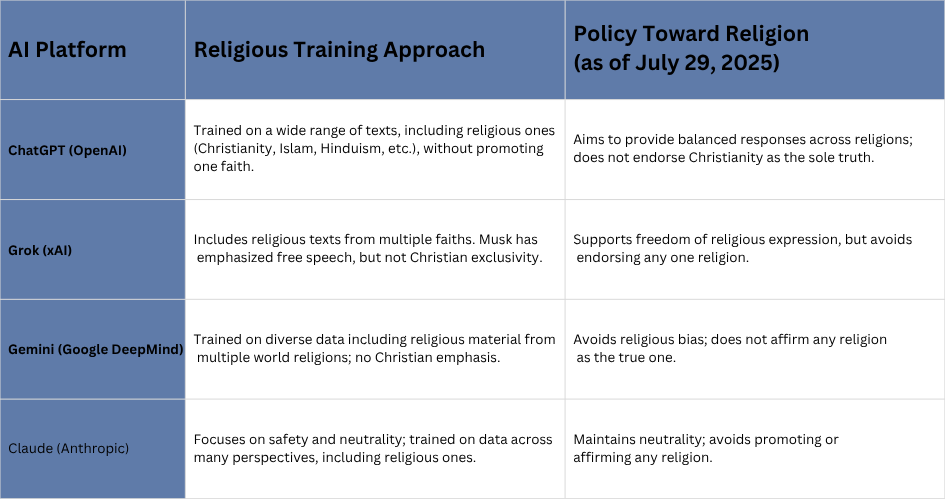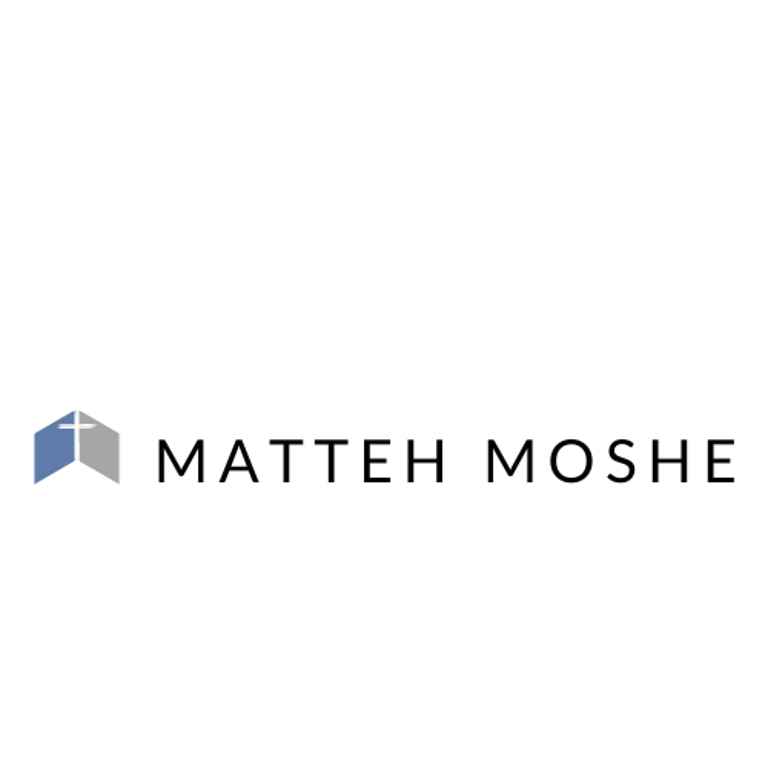Lesson 5
Walking in Wisdom – Using AI According to the Word
Not Just A Book of Rules.
Putting The Word first.
AI is a powerful tool, but like any tool, it must remain in its proper place—under submission to Christ and His Word. It can help believers organize their time, manage tasks, streamline communication, or even assist with basic research. But spiritual disciplines like prayer, Bible study, teaching, or preaching require the active involvement of the Holy Spirit, not automation. AI can provide suggestions or summaries, but it should never become your primary source. Just as smartphones have caused many to forget phone numbers (a phenomenon known as digital amnesia and the Google Effect), relying too heavily on AI can cause spiritual laziness—substituting artificial insight for divine wisdom.
That’s why we can’t just write a rigid book of rules for how AI should or shouldn’t be used in the Church. Like Scripture itself, it’s not about checklist Christianity. Boundaries aren’t legalistic—they are safeguards. Guardrails exist to protect believers from drifting into overdependence or detachment from the Spirit. AI is not inherently evil, but it is spiritually neutral and easily misused when placed in the wrong role.
God calls us to renew our minds (Romans 12:2) and meditate on His Word day and night (Psalm 1:2), not outsource discernment to machines. If you use AI to help explore ideas, always check its sources and compare everything to Scripture. The Bereans were considered noble because they tested everything by the Word (Acts 17:11)—we should do the same. Using AI rightly means keeping it below God’s Word, not beside it. It’s not a spiritual guide; it’s a digital assistant. Walking in wisdom requires keeping your feet on the path God directs, not one paved by convenience.


The Truth about AIs faith.
Despite the sophistication of today’s large language models—like Grok (xAI), ChatGPT (OpenAI), and Anthropic’s Claude—none are programmed with an explicit bias toward Christianity or positioned to affirm it as the one true faith. Instead, these platforms maintain neutrality by design, often limiting or refusing religious content in ways that avoid doctrinal endorsement. For example, in 2025, the Turkish government blocked Grok due to responses that were considered insulting to religious values, especially those of Islam—demonstrating how AI-generated content can clash with religious sensitivities but does not uphold or align with Christian theology (ThePrint, 2025). OpenAI also faced public criticism and a legal challenge for initially refusing to serve a Christian nonprofit, leading to accusations of religious discrimination. The company later reversed its decision following intervention by Alliance Defending Freedom (ADF Legal, 2025a; ADF Legal, 2025b). Furthermore, OpenAI’s own community forum documents user concerns that ChatGPT inconsistently handles religious prompts, sometimes favoring secular or pluralistic views while muting overtly Christian responses (OpenAI Community, 2025a; OpenAI Community, 2025b). These AI models are trained on diverse datasets and are shaped by internal alignment policies—not by divine revelation. They reflect human input and institutional boundaries, not biblical authority.


Christians using AI must stay informed about platform policies—especially on religion. These tools aren’t built to uphold biblical truth and may reflect conflicting worldviews. Knowing how they’re trained helps us guard our faith and keep Christ as our ultimate source of truth. Follow us for updates on future policy changes.


Biblical Verses to Support This Lesson:
Proverbs 4:23 – “Above all else, guard your heart, for everything you do flows from it.”
1 Thessalonians 5:21 – “Test all things; hold fast what is good.”
Hebrews 5:14 – “But solid food is for the mature, who by constant use have trained themselves to distinguish good from evil.”
James 1:5 – “If any of you lacks wisdom, you should ask God… and it will be given to you.”
Colossians 2:8 – “See to it that no one takes you captive through hollow and deceptive philosophy… rather than on Christ.”
Matthew 16:3 – “You know how to interpret the appearance of the sky, but you cannot interpret the signs of the times.”
Ephesians 6:12 – “For we wrestle not against flesh and blood, but against principalities… against spiritual wickedness in high places.”
Revelation 13:15 – “And it was given to him to give breath to the image of the beast…”
Daniel 12:4 – “Many shall run to and fro, and knowledge shall increase.”
1 John 4:1 – “Beloved, do not believe every spirit, but test the spirits to see whether they are from God…”
ADF Legal. (2025a, May 6). Artificial intelligence company discriminates against Christian nonprofit. https://adflegal.org/article/artificial-intelligence-company-discriminates-against-christian-nonprofit
ADF Legal. (2025b, May 22). OpenAI about-face: Tech giant reverses stance on Christian nonprofit after ADF lawsuit. https://adflegal.org/press-release/openai-about-face-tech-giant-reverses-stance-on-christian-nonprofit-after-adf-lawsuit
OpenAI Community. (2025a). Urgent concern: Inconsistent and potentially biased religious responses in ChatGPT-4o. https://community.openai.com/t/urgent-concern-inconsistent-and-potentially-biased-religious-responses-in-chatgpt-4o/1118172
OpenAI Community. (2025b). Biased usage and manipulation of ChatGPT models in public livestreams for religious purposes (TikTok case). https://community.openai.com/t/biased-usage-and-manipulation-of-chatgpt-models-in-public-livestreams-for-religious-purposes-tiktok-case-with-250-viewers/1270778
ThePrint. (2025, July 27). Grok, Sanatan Dharma & Ghar Wapsi — what Musk’s AI chatbot is telling India & why it was blocked in Turkey. https://theprint.in/feature/grok-sanatan-dharma-ghar-wapsi-musk-ai-capitalistic/2693844/

